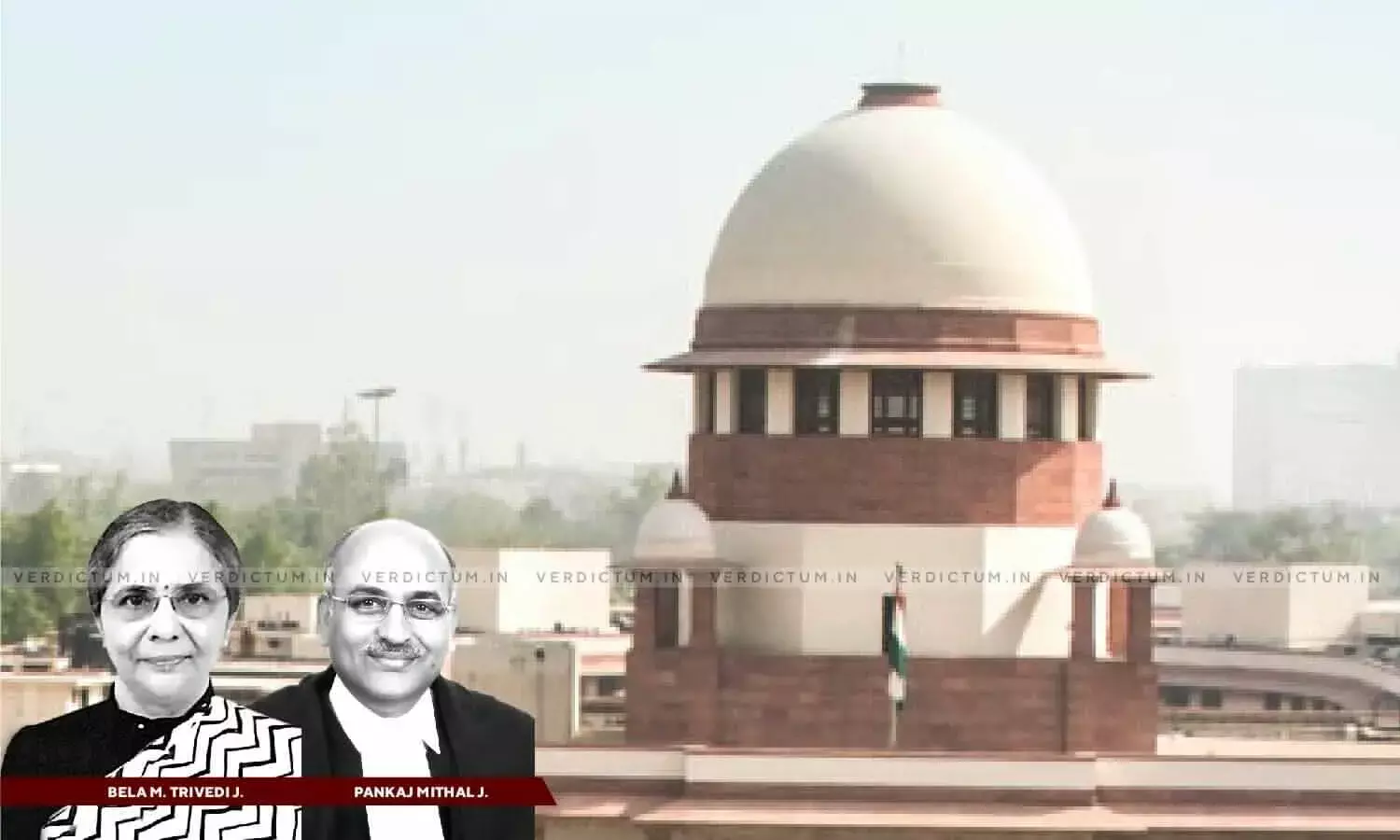SC Urges Tamil Nadu Government To Assist Enforcement Directorate In Money Laundering Probe
The state machinery should help the Enforcement Directorate in finding out if an offence has been committed as there is no harm in it, the Supreme Court told the Tamil Nadu government today.
The Apex Court had last week questioned the Tamil Nadu government for filing a plea in the Madras High Court against the ED for its probe in a money laundering case.
The central probe agency had summoned the district collectors of Vellore, Tiruchirappalli, Karur, Thanjavur and Ariyalur in connection with its probe in a money laundering case related to alleged illegal sand mining.
The state government along with the bureaucrats had moved the High Court that stayed the summons issued by the ED. The probe agency has moved the top court against the High Court order.
The ED's plea came up for hearing today before a bench of Justice Bela M Trivedi and Justice Pankaj Mithal.
"State and its officers should help the ED in finding out if there is any offence," the bench observed, adding, "If the state machinery is asked to help, what is the harm caused?"
Senior Advocate Kapil Sibal, appearing for Tamil Nadu, said the Apex Court had last time asked how the state could have filed the petition before the High Court.
"How the state is aggrieved if district collectors are asked something? If the district collector in individual capacity was aggrieved, he could have filed," the bench said.
"The state has to comply with the law of parliament under Article 256 (of the Constitution). The state has to comply with PMLA (Prevention of Money Laundering Act)," it added.
The bench asked how the writ petition filed before the high court was maintainable.
Sibal said mining was not a scheduled offence under the PMLA and the state was aggrieved because the ED was asking for information from the district collectors.
"Under which provision of the PMLA, they (ED) are entitled to do this," Sibal asked, adding that ED is concerned with money laundering.
"In this case, the state is filing a writ petition because the authority of the state has been asked to produce documents with respect to mining leases," Sibal said, adding the state was aggrieved by the "omnibus order" of the ED asking the district collectors to give information.
The Senior Advocate argued that no formal notice had been issued by the apex court to the state on the ED's plea.
Additional Solicitor General S V Raju, appearing for ED, told the bench that under the Supreme Court Rules, there was no need to give formal notice to a caveator.
He said the case does not relate to the offence of mining only as offences of criminal conspiracy and cheating under the Indian Penal Code were also there.
"We are investigating the section 120-B (criminal conspiracy) aspect also Look at the attitude of the state. It appears that the state is trying to protect the accused. Why the state is agitated about it," Raju said.
The bench was informed that an affidavit had been filed by one of the respondents in the matter.
The Apex Court said the affidavit be placed on record and posted the matter for hearing tomorrow.
While hearing the matter last week, the bench had asked the state's counsel, "How can the state file this writ petition? Under which law? You satisfy us on how the state is interested and how it can file this writ petition against the Enforcement Directorate. How is the state aggrieved."
It had said the officials should cooperate with the ED.
Senior Advocates Mukul Rohatgi and Amit Anand Tiwari, appearing for the state government, had said that Tamil Nadu was bound to protect its officials from "illegal" probe of the agency.
The high court, while staying the summons, had said that the ED was venturing into a fishing expedition to find out whether information and evidence collected from the district administration could be processed further from other sources to find out a commission of the scheduled offences.
Raju had told the apex court that the district collectors were not among the accused and were summoned only as witnesses.
With PTI Inputs




